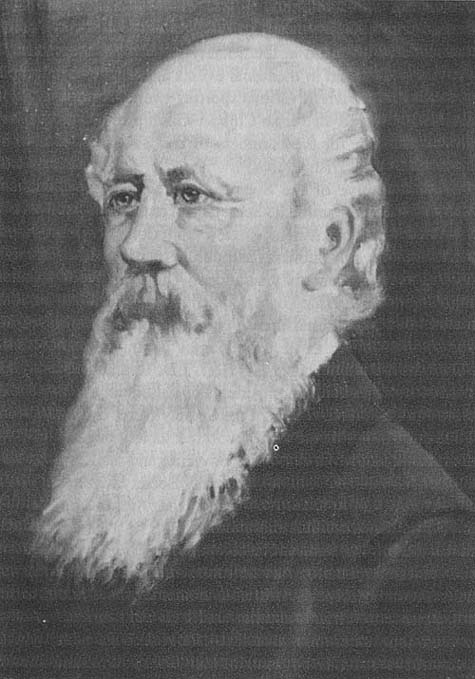Charles Fox Bennett on:
[Wikipedia]
[Google]
[Amazon]
 Charles James Fox Bennett (11 June 1793 in
Charles James Fox Bennett (11 June 1793 in
 Charles James Fox Bennett (11 June 1793 in
Charles James Fox Bennett (11 June 1793 in Shaftesbury
Shaftesbury () is a town and civil parish in Dorset, England. It is situated on the A30 road, west of Salisbury, near the border with Wiltshire. It is the only significant hilltop settlement in Dorset, being built about above sea level on a ...
, England
England is a country that is part of the United Kingdom. It shares land borders with Wales to its west and Scotland to its north. The Irish Sea lies northwest and the Celtic Sea to the southwest. It is separated from continental Europe b ...
– 5 December 1883) was a merchant and politician who successfully fought attempts to take Newfoundland
Newfoundland and Labrador (; french: Terre-Neuve-et-Labrador; frequently abbreviated as NL) is the easternmost province of Canada, in the country's Atlantic region. The province comprises the island of Newfoundland and the continental region ...
into Canadian confederation
Canadian Confederation (french: Confédération canadienne, link=no) was the process by which three British North American provinces, the Province of Canada, Nova Scotia, and New Brunswick, were united into one federation called the Canada, Dom ...
. Bennett was a successful businessman and one of the colony's richest residents with interests in the fisheries, distillery and brewery industry and shipbuilding. His brother Thomas Bennett, a magistrate and member of Newfoundland's first House of Assembly, was a partner in the business.
Bennett became involved in politics in the 1840s as a leader of the colony's Anglican
Anglicanism is a Western Christian tradition that has developed from the practices, liturgy, and identity of the Church of England following the English Reformation, in the context of the Protestant Reformation in Europe. It is one of th ...
community and an opponent of responsible government
Responsible government is a conception of a system of government that embodies the principle of parliamentary accountability, the foundation of the Westminster system of parliamentary democracy. Governments (the equivalent of the executive bran ...
, an argument he lost when an alliance of Catholics
The Catholic Church, also known as the Roman Catholic Church, is the largest Christian church, with 1.3 billion baptized Catholics worldwide . It is among the world's oldest and largest international institutions, and has played a ...
and non-Anglican Protestants persuaded the Colonial Office
The Colonial Office was a government department of the Kingdom of Great Britain and later of the United Kingdom, first created to deal with the colonial affairs of British North America but required also to oversee the increasing number of col ...
to grant Newfoundland self-government.
In the 1860s, he led the Anti-Confederation Party
''Anti-Confederation'' was the name used in what is now the Maritimes by several parties opposed to Canadian Confederation. The Anti-Confederation parties were accordingly opposed by the Confederation Party, that is, the Conservative and Liberal- ...
opposing the proposals by Sir Frederick Carter
Sir Frederick Bowker Terrington Carter, (February 12, 1819 – March 1, 1900) was a lawyer and Premier of Newfoundland from 1865 to 1870 and from 1874 to 1878.
Career
Carter was the son of Peter Weston Carter''Volume one, p. 363, Encyclopedia ...
to join Canada. Bennett's party defeated Carter's Conservatives on the Confederation issue in the 1869 elections, allowing Bennett to form a government in 1870. However, as Premier
Premier is a title for the head of government in central governments, state governments and local governments of some countries. A second in command to a premier is designated as a deputy premier.
A premier will normally be a head of governm ...
he was unable to keep his party united, and in 1874 resigned, allowing Carter to return to power. The issue of Confederation had become a moot point and would not be seriously raised again until the Great Depression
The Great Depression (19291939) was an economic shock that impacted most countries across the world. It was a period of economic depression that became evident after a major fall in stock prices in the United States. The economic contagio ...
.
Bennet also commissioned extensive mineral surveys along the coasts, and in the 1860s developed the prosperous copper mine at Tilt Cove (Notre Dame Bay).
Bennett's anti-Confederates reformed themselves into the colony's Conservative Party.
References
External links
* {{DEFAULTSORT:Bennett, Charles Fox 1793 births 1883 deaths People from Shaftesbury Premiers of Newfoundland Colony British North American Anglicans Persons of National Historic Significance (Canada) Anti-Confederation Party politicians English brewers British merchants English emigrants to pre-Confederation Newfoundland Drink distillers 19th-century English businesspeople